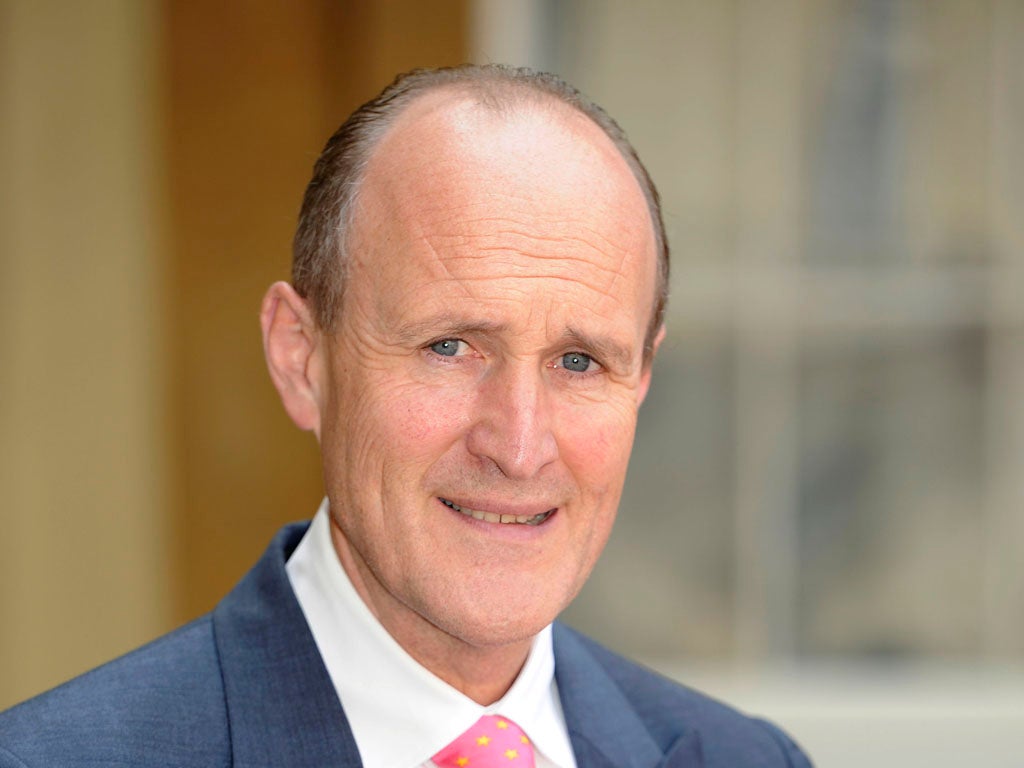So what does go on inside the Arts Council, Mr Bazalgette?
He failed to mention or defend the seemingly outrageous use of public money


Your support helps us to tell the story
From reproductive rights to climate change to Big Tech, The Independent is on the ground when the story is developing. Whether it's investigating the financials of Elon Musk's pro-Trump PAC or producing our latest documentary, 'The A Word', which shines a light on the American women fighting for reproductive rights, we know how important it is to parse out the facts from the messaging.
At such a critical moment in US history, we need reporters on the ground. Your donation allows us to keep sending journalists to speak to both sides of the story.
The Independent is trusted by Americans across the entire political spectrum. And unlike many other quality news outlets, we choose not to lock Americans out of our reporting and analysis with paywalls. We believe quality journalism should be available to everyone, paid for by those who can afford it.
Your support makes all the difference.Timing is everything in the arts, though not it seems in the Arts Council, the quango that funds much of this country’s culture.
Timing is everything in the arts, though not it seems in the Arts Council, the quango that funds much of this country’s culture. Its new chairman, Peter Bazalgette, gave his inaugural lecture on Budget day, and the coverage was predictably minimal. Strange that none of the myriad advisers at the Council bothered to point out to Mr Bazalgette that there might be better days to make a splash.
But let us not completely ignore such an important event. My appetite for the lecture was whetted by the fact that, only a few days before, a story broke in the press of how the Council, while cutting grants to hard-pressed arts organisations, was giving some of its own staff taking redundancy six-month paid sabbaticals to sweeten the pill. I’d have been interested to learn how Mr Bazalgette defended such a seemingly outrageous use of public money. But curiously he failed even to mention it.
He did mention business, saying it should do more to support the arts. He did rightly heap praise upon the current state of artistic endeavour, he did in a sophisticated speech, detail how new partnerships were evolving between arts organisations and their local economies. But perhaps a little introspection might have gone a long way. Perhaps the chairman of the Arts Council could have talked about the Arts Council.
For let’s face it, few people really know how this quango works. We know that it is terribly important and powerful, for when the elected arts minister is asked a question in Parliament, time and again he replies “that is a matter for the Arts Council.” But how the Arts Council goes about its business is something of a mystery, even to those who spend their lives working in the arts. How does it decide which bodies to fund, which bodies to cut? We don’t know because its meetings are closed to press and public. What a pity that Mr Bazalgette did not use his inaugural address to state that henceforth those meetings would be open. What a pity he did not use it to explain what the overarching policy was behind its funding decisions. Is it to fund fewer better, to share the misery of the cuts, to concentrate more on particular art forms? How does it balance its various roles as funder and advocate for the arts, recipient of government money (and appointments) and critic of the government?
The man who brought Big Brother to British television is clearly not short on imagination or innovation. I hope that his next speech gives an imaginative vision for the future of his own organisation, a vision that will make it more democratic, transparent and accountable. And he should be open and direct in responding to press stories about some of the Council’s stranger practices, and let us know how he will resolve them. Now that would make a must-hear speech.
There are bigger things in life than acting
Actresses did well in a survey this week to discover who were the most inspiring and spirited women. Rather too well. Dame Judi Dench occupied first place, Dame Helen Mirren was second, both of them beating, bizarrely, the likes of Emmeline Pankhurst, Florence Nightingale and Margaret Thatcher. But do any of the 4,000 women surveyed to find these role models really know much about Judi Dench or Helen Mirren? They know the roles they play, I’m sure they admire Jane Tennison in Prime Suspect, but she is not Helen Mirren, any more than M or Cleopatra is Judi Dench. We know very little about their private lives and personalities, what inspires them or how “spirited” they are off stage and off camera. They may be decidedly unspirited. They are both brilliant actresses, and that in itself is indeed an inspiration. But let’s keep a sense of perspective about acting. The suffragettes did more to change lives. Nursing in the Crimea demanded more spirit.
Would the censor allow a film about the Bolshoi?
The head of the Bolshoi is attacked by someone throwing acid at him, a dancer is arrested and appears in court in connection with the offence, and the most recent twist has a former Bolshoi ballerina making an allegation (denied by the company) that the Bolshoi is a “giant brothel” with some ballerinas told they must entertain and sleep with oligarchs or they will not be allowed to perform. I recall that when the Natalie Portman (left) film Black Swan came out with a plot that included company jealousies, sexual harassment and lashings of actual sex, dancers lined up to say what an absurd picture of ballet company life it gave. True, it was far too understated.
d.lister@independent.co.uk
twitter.com/davidlister1
Join our commenting forum
Join thought-provoking conversations, follow other Independent readers and see their replies
Comments